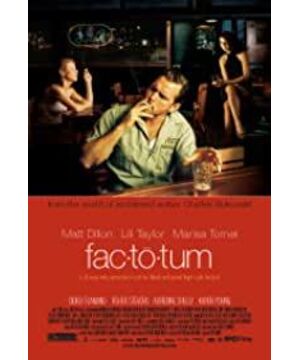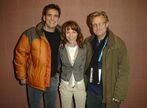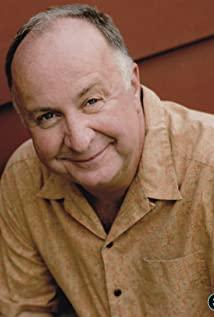Everyone in this world needs a job, or in other words, everyone needs an income. Charles Bukowski, a "beat" writer who was exiled from the American literary world for his entire life, had almost no "serious" job in his life, just like the hero in "Factotum". Although now everyone says that he is as great as Grujak.
Whether it's 2005's "Factotum" or 1987's "Drinking Heart", screenwriter Charles Bukowski named the hero Henry Chinaski, reminiscent of Henry Miller, who was also down and out before he became famous. Like Henry Miller, Charles Bukowski is of German-German origin. He grew up in the United States, dropped out of college before finishing his studies, refused to work from 9 to 5, and with the ambition to write great works, he was happy. Be a little nameless person, wandering around in the world.
No job, no income. Whether it's Henry in "Factotum" and "Drinking Hearts"—both are portrayals of Bukowski's life—or Bukowski himself, forced to make a living, has naturally done everything. Chevrolet odd jobs, temporary janitors at small museums, newspaper editorial proofreaders, of course not excluding cheeky women who can afford at least rent and a can of beer. Twenty-four hours a day, at least twenty-three hours and fifty-nine minutes, he's a scumbag who goes to the low-level liquor room for a penny to guzzle beer and martini, a drunken scoundrel who fights and fights , waste time, spoil yourself. But in the dead of night, back in the dirty slum apartment, listening to the snoring of the lover's drunken bed, the red light of the tavern sign outside the window flickering on the window, put a plate of Mozart, Henry Chinaski or Bukowski put it on Wings, from mortal to angel. He writes poems and novels, secreting a very pure language from his blood mixed with alcohol: "But I can't stop thinking about you, I feel like you are in my womb like a fetus, I call it Love." "I saw you drinking from a spring, with your little, little blue hand, that spring was born in France."
The vast majority of films that describe writers have the problem of artificiality, making the audience feel that the writers are insane. But "Factotum" has no such drawbacks. Writers like Charles Bukowski are hyper-impulsive, intemperate, alcoholics and combatives, but that doesn't mean they don't know what society is. In terms of knowledge, they also have insight into the world and are eager to be liked by others and recognized by society, but they are unwilling to change themselves for this, and are unwilling to pretend to be someone else. Factotum reveals this. If a film about a writer does that, that's fine.
Bukowski himself is a Factotum and writes everything, poems, short stories, novels, plays. Having lived in the slums of Southern California all his life, he finally had a BMW before he died. Outside the United States, tens of millions of readers are mad about it, including my favorite music poet Chen Sheng on the treasure island. Knowing the hardships, he designed an uneasy ending for Henry. After the female editor of the "Black Sparrow" publishing house saw the hero, Henry Chinaski did not receive the manuscript fee, and he was swept out of the house by the landlord. It seems that some people will continue to be unlucky. Bukowski seemed to want to say, well, it's okay not to be famous, at least Henry lived as he wanted and wrote so much, that's enough. The key is to persevere and always have the courage. An alcoholic is an alcoholic, a lecher is a lecher, and I am me. Baudelaire did not say that he would rather sink into hell than be empty.










